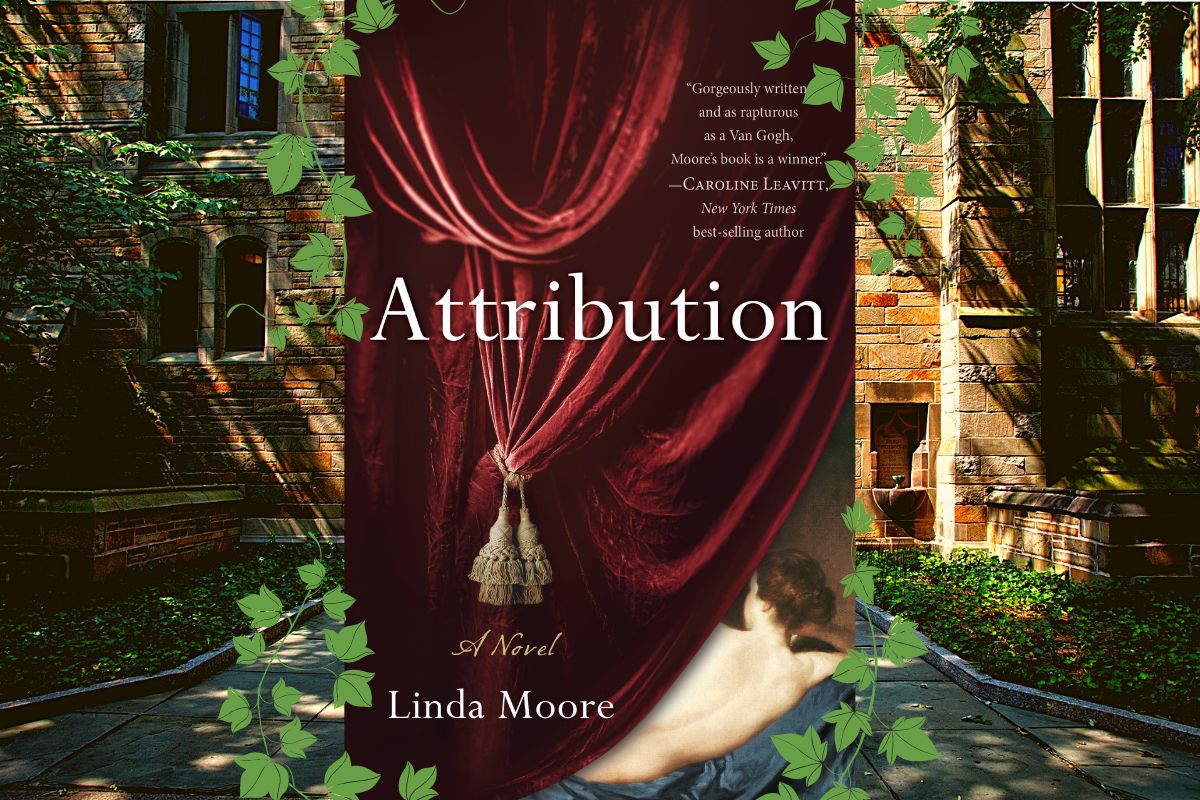Sexism in the Ivory Tower Hasn’t Shifted

The Ivory Tower continues to look above and past all of us down here. Hello up there, esteemed professors who claim to be the progressives that lead our society, it’s time to clean house.
When I wrote Attribution, a novel about a young woman struggling in a male-dominated art history department, I did not begin with a mission to critique the academy. But as I imagined Cate’s narrative journey, I naturally drew upon my own experiences in five different universities. Are all novels autobiographical? Well not exactly, but…
Professor Jones treats Cate, the only woman in the small doctoral program in a large, but fictional New York City university, different from the beginning. A scene where she is greeted with a cold and awkward welcome at the fall department cocktail party was taken from my own experience. I arrived at a similar party at Stanford, a bride of six months with my beaming husband in tow. Before the Chair of the Department greeted me, he looked at us both and declared, “We didn’t realize you were married.” No hello, great to meet you, welcome, etc. From that moment on, I felt dismissed and disregarded with no future in the field (Latin American Politics).
Okay, that was a few decades ago, and things have changed, right? I was reminded of that by a distinguished professor friend with a slew of titles on his CV: chair, dean, emeritus and more. After he read Attribution, he praised several things in the book, but gently reminded me, except for a few dinosaurs, Jones’ treatment of Cate does not exist any longer in the enlightened university. We have policies, complaint procedures and committees to deal with this, he said.
I thanked him for reading Attribution and for providing the update from the tower. I immediately turned to the street to ask younger sisters what their more recent experiences had been. No surprise—every woman with a graduate degree, an abandoned or pending one, affirmed differential treatment still exists. Perhaps it is a bit more subtle than fictional Professor Jones (I had to tone him down from where he started), but merit can be ignored in plumb assignments to co-author (I wrote whole articles, not a word changed, and my name appears nowhere), support for research grants, teaching assistant roles, or the ultimate prize—using the old boys’ network to secure placement in a tenure track academic position. Many younger women who had read all or parts of Attribution even described a specific professor who was like Jones and told me shocking stories.
Why didn’t these women use the great new policies, all the committees that my friend suggests have nearly eliminated sexism and other practices in the ivy halls? You know why—the same reasons that women don’t complain to HR or do go along with inappropriate advances in every industry you can name. There will be consequences, and the label of troublemaker will dissuade other whistleblowers for fear their careers will suffer.
I opted to work in the ‘real’ world early on. The endless debating over field-specific minutiae while the Vietnam War raged and my friends were dying sent me off on a different path. Today the tower in the clouds remains oblivious to the society it presumes to study and offer insights about how to improve our world but fails to change itself.
Of course, the issues my protagonist Cate, faces include much more than money. Maybe today, differential treatment of women (fill in the blank with POC, LBGTQ, ageism, social classism and more) has gone underground as it is seen as unacceptable, but that only makes these Neanderthal attitudes and behavior more insidious. I don’t have answers except for a bit of hope in watching young men take an equal place beside their female colleagues, recognizing them and supporting them based on merit. As we have learned with the recent hijacking of women’s rights, dinosaurs lay in wait to raise their ugly heads and exercise their power. Change comes slowly, but really fifty years of some progress has been lost.
We fight on, never to go back and hide in the kitchen while powerful men smoke their cigars. Oh, and yes, that twirling pencil thing that Professor Jones does was taken from that same sexist Department Chair who thought a married woman could not accomplish anything.
—
Attribution
For fans of Laura Morelli’s Night Portrait and The Stolen Lady and B.A. Shapiro’s The Collector’s Apprentice and Art Forger
Art historian Cate Adamson, desperate to succeed to console her grieving parents, leaves the Midwest to complete her doctorate in New York–only to find herself assigned to an impossible sexist advisor. She struggles to impress him until she discovers a hidden painting, possibly a Baroque masterpiece. Risking her career, financial disaster, and further alienation from her family, she flees to Spain with the painting to consult art experts.
Antonio, an impoverished duke, meets Cate on the train to Seville, and joins her search while attempting to rescue the decaying legacy of his family. They find clues and uncover evidence that will shock the titans of art history, may destroy her prospects as an art historian, and shatter her future with Antonio.
Written with vivid prose, rich references to seventeenth century Spanish art, compelling characters and a historical puzzle, Attribution is the story of one contemporary woman’s journey to understand the past and unlock her future.
Attribution is available now.
(featured image: She Writes Press, Pexels, and Alyssa Shotwell)
The Mary Sue may earn an affiliate commission on products and services purchased through links.
—The Mary Sue has a strict comment policy that forbids, but is not limited to, personal insults toward anyone, hate speech, and trolling.—
Have a tip we should know? tips@themarysue.com